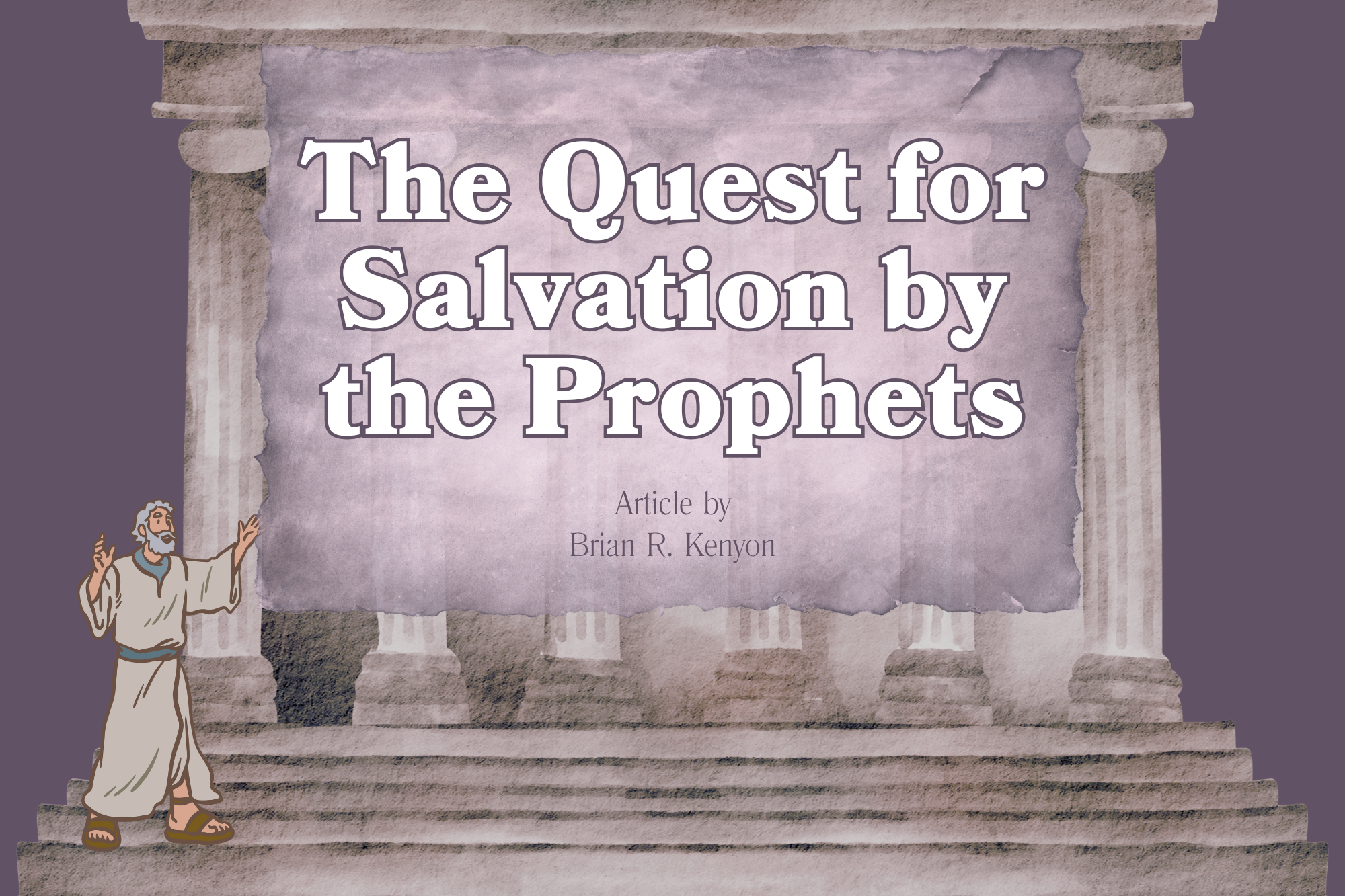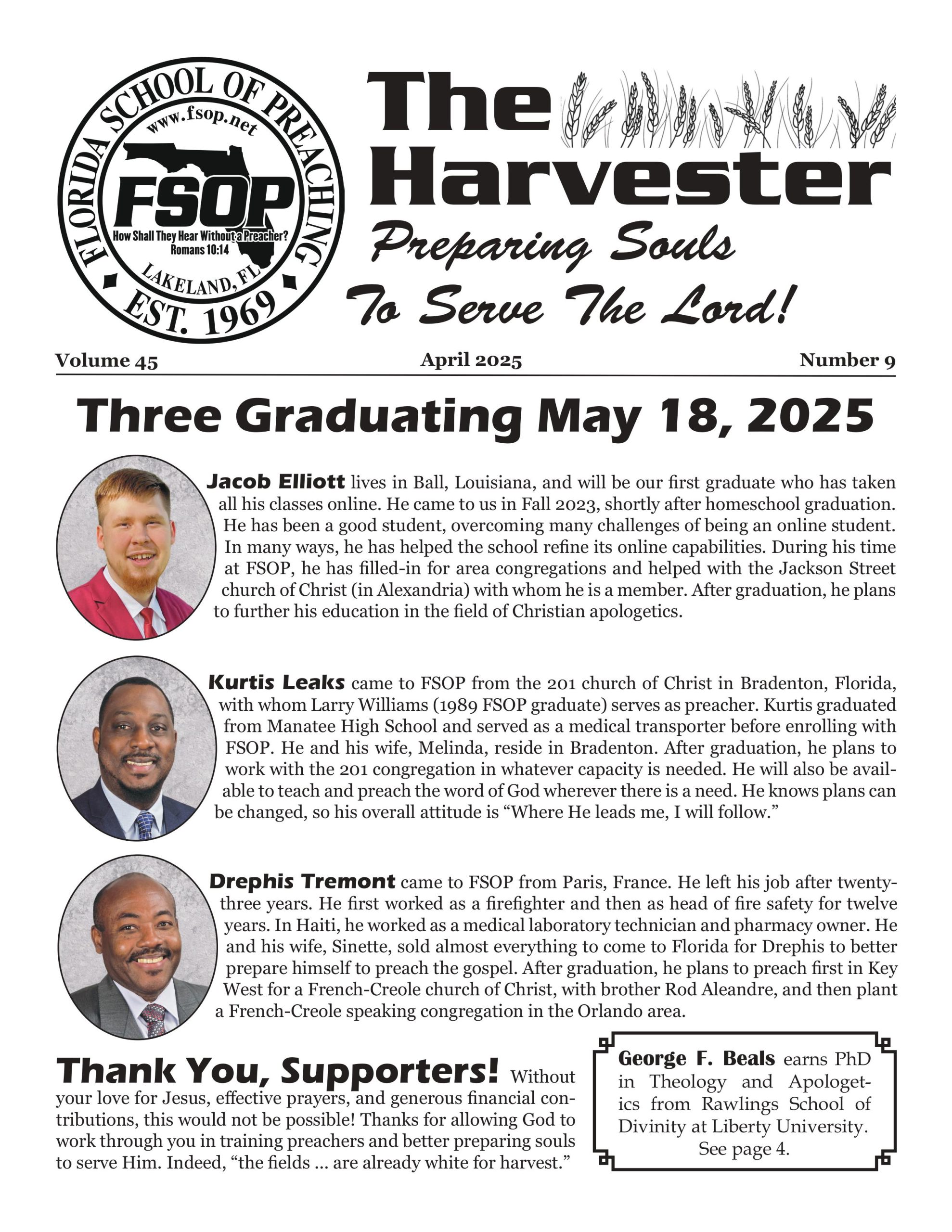May 26 2025
Cultural Lies in Disguise – Part 2 (S2E5)
Summary In this episode of the Harvester Podcast, the hosts discuss cultural lies that impact society’s views on marriage, identity, and sexual relationships. They explore the alleged oppressive nature of the status quo, the implications of self-expressed individualism, and the consequences of casual sexual relationships. The conversation emphasizes God’s design for marriage as a divine institution meant for companionship, intimacy, and procreation, while also addressing the emotional and psychological impacts of deviating from this design. The episode concludes with a call to know, believe, live, and teach the truth to counter these cultural lies. Keywords Cultural Lies, Marriage, Sexual Relationships, Identity, Consequences, God’s Design, Emotional Impact, Birth Control, Intimacy, Companionship Chapters 00:00 Introduction to Cultural Issues00:58 Exploring Cultural Lies02:35 The Consequences of Sexual Relationships08:42 God’s Design for Marriage18:36 The Importance of Marriage in Society26:45 The Blessings of God-Ordained Relationships
May 19 2025
Cultural Lies in Disguise – Part 1 (S2E4)
Summary In this episode, the hosts discuss the cultural lies that are often disguised as truths, focusing on the alleged oppressive nature of the status quo and the necessity of self-expressed individualism for identity and worth. They explore how these concepts are rooted in Marxism and how they affect societal norms, particularly in relation to Christianity and traditional values. The conversation emphasizes the importance of understanding one’s identity in the context of being made in God’s image and the dangers of equating behavior with identity. Keywords Christian ethics, cultural issues, status quo, individualism, authenticity, identity, Marxism, LGBTQ, truth, morality Chapters 00:00 Lies Disguised as Truths in Today’s Culture15:09 The Status Quo and Its Oppression29:55 Self-Expressed Individualism and Identity39:00 The Consequences of Sexual Relationships
May 12 2025
The Christian View of Ethics (S2E3)
Summary In this episode, the hosts delve into the Christian view of ethics, exploring its foundation in God’s nature and will. They discuss the absolute nature of Christian ethics, the importance of divine revelation, and the prescriptive nature of biblical ethics. The conversation emphasizes the duty-centered approach to ethics, highlighting the accountability individuals have to adhere to God’s standards. The hosts conclude by affirming that Christian ethics is the only system that truly works, driven by love for God and a commitment to His commands. Keywords Christian ethics, God’s nature, absolute morality, divine command theory, biblical revelation, prescriptive ethics, duty-centered ethics, moral accountability, ethics in culture, ethical standards Chapters 00:00 Introduction to Christian Ethics01:48 God’s Nature as the Foundation of Ethics08:08 The Absolute Nature of Christian Ethics13:01 God’s Revelation and Ethics31:53 Prescriptive Nature of Biblical Ethics37:13 Duty-Centered Ethics and Accountability
May 05 2025
Cultural Views of Ethics (S2E2)
Summary In this episode, the hosts discuss the influence of culture on ethics, exploring various ethical systems and their implications. They emphasize the importance of a biblical standard of ethics that transcends cultural norms and highlights the objective nature of morality as defined by scripture. The conversation covers topics such as the fallacy of ‘might is right’, the role of social norms, individual versus collective morality, and the dangers of subjective ethics. Ultimately, they advocate for a return to biblical principles as the only true guide for ethical behavior. Keywords ethics, culture, morality, biblical ethics, might is right, social norms, individual ethics, collective morality, subjectivity, pleasure, indefinable ethics Chapters 00:00 Introduction to Ethics and Culture02:58 The Objective Standard of Ethics06:05 Cultural Influences on Ethics08:59 Might is Right: Power and Morality12:02 Morals and Mores: Social Norms14:58 Man is the Measure: Individual Ethics17:50 Ethnicity and Ethics: Cultural Perspectives21:00 Subjectivity in Ethics: No Right or Wrong24:07 Pleasure as the Standard of Good27:04 Defining Good: Philosophical Challenges30:00 Conclusion: The Biblical Standard of Ethics
May 01 2025
The Quest for Salvation by the Prophets
The Old Testament is full of prophecies. Many people are only familiar with the ones quoted or alluded to in the New Testament. However, there are so much more, many tying into the coming Messianic kingdom. It might surprise us but even though these prophets were inspired by the Holy Spirit (2 Peter 1:19-21), they did not know how, when, or under what circumstances their messages would be fulfilled, even the angels desired to know. This article points out their careful inquiry, service to us, and relevance to the Gospel today.
Apr 28 2025
Culture and the Bible (S2E1)
Summary In this episode of the Harvester podcast, the hosts delve into the intricate relationship between the Bible and culture. They explore how culture influences Christianity, the ethical standards derived from cultural contexts, and the importance of discerning between cultural customs and biblical obligations. The discussion emphasizes the authority of Scripture in guiding moral truths and the necessity of understanding cultural implications in biblical interpretation. The episode concludes with key takeaways on the enduring relevance of Scripture amidst changing cultural landscapes. Keywords Bible, culture, Christianity, ethical standards, moral relativism, scripture interpretation, cultural customs, authority of scripture, hermeneutics, cultural influence Chapters 00:00 Introduction to Bible and Culture03:00 Understanding Cultural Influence on Christianity05:51 Defining Culture and Its Impact08:58 Cultural Context in Biblical Interpretation12:02 The Role of Scripture in Cultural Evaluation14:51 Transcending Culture: Timeless Biblical Principles18:07 Moral Relativism and Cultural Judgments21:05 Determining Cultural vs. Obligatory Teachings24:17 Understanding Customs and Their Relevance27:51 The Role of Culture in Biblical Practices31:01 False Theories on Scripture and Culture37:20 The Authority of Scripture Over Culture
Apr 21 2025
Bonus Bumper-sowed 2: Lessons on Leadership from Moses (Exodus 18:13-26) (Bonus Episode)
Summary In this episode, Brian Kenyon and Steven Ford discuss leadership lessons from Moses, emphasizing the importance of humility, learning, and knowing God’s Word. They explore the significance of recognizing limitations, delegating responsibilities, and mentoring future leaders. The conversation highlights the qualities of effective leaders, the necessity of listening to wise counsel, and the importance of modeling meekness and trust in God. Keywords leadership, Moses, humility, mentorship, biblical principles, delegation, God’s Word, effective leaders, meekness, wise counsel Chapters 00:00 Leadership Lessons from Moses02:59 The Importance of Learning and Humility in Leadership05:30 The Role of God’s Word in Leadership09:08 Recognizing Limitations as a Leader10:47 Mentorship and Delegation in Leadership12:17 Training Future Leaders15:11 Learning from Mistakes17:23 Qualities of Effective Leaders20:32 The Courage to Stand for Truth23:37 Focusing on People and Goals in Leadership27:40 The Importance of Listening as a Leader30:10 Modeling Humility and Meekness in Leadership
Apr 14 2025
Bonus Bumper-sowed 1: The Need for Preparing Leaders (Joshua 1:1-9) (Bonus Episode)
Summary In this episode, Brian Kenyon and Steven Ford discuss the essential qualities of leadership within the church, emphasizing the importance of mentorship, preparation of future leaders, and the need for courage and adherence to God’s law. They draw lessons from the life of Joshua, highlighting how effective leadership can influence a community and ensure the continuity of faith and service in the church. Keywords leadership, church, mentorship, Joshua, elders, influence, courage, God’s law, preparation, community Chapters 00:00 Introduction to Leadership in the Church03:04 Defining Leadership and Its Importance05:59 Preparing Future Leaders09:06 The Role of Mentorship in Leadership11:59 Lessons from Joshua’s Leadership15:05 Overcoming Obstacles and Seizing Opportunities18:02 Courage in Leadership20:54 Observing God’s Law as a Leader23:59 The Impact of Joshua’s Leadership27:05 Conclusion and Final Thoughts on Leadership
Apr 07 2025
Unity Traits Learned from Conflict: Philemon and Onesimus (S1E12)
Summary This conversation explores the themes of unity, forgiveness, and restoration through the lens of the relationship between Philemon and Onesimus. The hosts discuss the importance of mediation in resolving conflicts, the necessity of receiving one another as brothers in Christ, and the challenges of forgiveness. They emphasize the transformative power of the gospel in relationships and the need for consent in reconciliation. The discussion highlights the spiritual dynamics at play in restoring unity and the call to see each other through the lens of love and grace. Keywords Philemon, Onesimus, unity, forgiveness, restoration, mediation, Christian relationships, gospel, reconciliation, love Chapters 00:00 Introduction to Philemon and Onesimus02:48 The Context of Unity in Relationships05:51 The Role of Mediation in Restoration08:53 The Importance of Reception and Forgiveness11:58 The Power of the Gospel in Relationships14:51 Consent and Voluntary Unity17:59 The Nature of True Forgiveness21:02 The Role of Christ in Reconciliation24:07 The Impact of Restoration on Community26:58 Conclusion and Reflection on Unity
Apr 01 2025
Who Is a Faithful and Wise Servant
When will be the end of time? How can we know? Must we uncover a secret mathematical formula based on the Apocalypse? Must we discover the “signs of the times”? These, and similar questions, surround the coming of the last day, but rest assured, the Bible is very clear: there will be no signs and there is no formula to figure it out (Matthew 24:36-42; 1 Thessalonians 5:1-2). However, we are not left clueless. There is a way we can be certain, that no matter when Jesus does come “the second time” (Hebrews 9:28), we can be ready. This article gives insight into who is a “faithful and wise servant” from Jesus’ discussion about the destruction of Jerusalem and the end of the world. In this, Jesus revealed the secret to being ready.
Mar 31 2025
Unity Traits Learned from Conflict: Paul and Barnabas (S1E11)
Summary In this episode, the hosts discuss the significant confrontation between Paul and Peter as recorded in Galatians 2. They explore the themes of unity, courage, and the importance of standing for the truth of the gospel. The conversation highlights the necessity of confronting hypocrisy and maintaining fellowship among believers, emphasizing that actions must align with the teachings of Christ. The hosts reflect on the attributes of Paul, including his bravery, sincerity, and commitment to the truth, and how these qualities are essential for the church’s unity and mission. Keywords Paul, Peter, unity, confrontation, gospel, courage, truth, church, faith, biblical mindedness Chapters 00:00 Introduction to Unity in the New Testament01:10 Conflict Between Paul and Peter04:55 Courage and Confrontation09:54 Attentiveness to Unity13:57 Biblical Mindedness and Sincerity20:10 Loving Boldness in Addressing Sin28:41 The Importance of Unity in the Gospel
Mar 25 2025
Unity Traits Learned from Conflict: Paul and Peter (S1E10)
Summary In this episode, the hosts discuss the theme of unity in the New Testament, focusing on the relationship between Paul and Barnabas. They explore the biblical examples of conflict and resolution, emphasizing the importance of encouragement, humility, and the ability to disagree without severing relationships. The conversation highlights how both figures maintained their mission to spread the gospel despite their differences, ultimately demonstrating that unity can exist even in disagreement. Keywords unity, New Testament, Barnabas, Paul, conflict resolution, missionary journey, encouragement, humility, church, disagreement Chapters 00:00 Introduction to Unity in the New Testament01:50 Barnabas: The Encourager07:52 The First Missionary Journey and John Mark09:42 The Conflict Between Paul and Barnabas15:54 Resolution and Separation26:18 Lessons on Unity and Conflict Resolution
Mar 17 2025
Traits of Unity as Seen in Abram (Gen. 13:5-12) — Maturity, Humility, Love, Priority, Proof (S1 E9)
Summary In this episode, the hosts discuss the biblical account of Abraham and Lot to explore the theme of unity. They emphasize the importance of humility, love, and prioritizing relationships over personal desires. The conversation highlights how true unity requires action and sacrifice, drawing parallels to contemporary Christian teachings and the necessity of maintaining unity within the church. Keywords unity, Abraham, Lot, humility, sacrifice, relationships, conflict resolution, Christian teachings, podcast, Florida School of Preaching Chapters 00:00 Exploring Unity Through Abraham and Lot30:00 The Importance of Humility and Love in Unity
Mar 10 2025
Truth Versus Tradition (Part 2) — Inherent Sin Versus Instrumental Sin (Gal. 5:19-23) (S1E8)
Summary In this episode, the hosts discuss the complex relationship between truth and tradition within Christianity. They explore the concepts of inherent and instrumental sin, the importance of expediency in maintaining unity, and the role of conscience in decision-making. The conversation emphasizes the need for love and understanding in navigating traditions, as well as the dangers of pleasing men over God. The hosts draw on biblical examples, particularly from the Apostle Paul, to illustrate their points and encourage listeners to reflect on their own practices and beliefs. Keywords Truth, Tradition, Inherent Sin, Instrumental Sin, Expediency, Unity, Conscience, Weaker Brother, Love, Paul, Religion Chapters 00:00 Introduction to Truth versus Tradition01:57 Understanding Inherent and Instrumental Sin09:49 The Role of Expediency in Unity19:51 Navigating Conscience and Tradition29:59 The Heart of True Religion
Mar 03 2025
Truth versus Tradition (Part 1) — What is Tradition (Mt. 15:1-9; 2 Thes. 2:15; 3:6)? (S1E7)
Summary In this episode, the hosts delve into the complex relationship between truth and tradition within Christianity. They discuss how traditions can either support or undermine biblical teachings, emphasizing the importance of understanding the source and nature of traditions. The conversation highlights the need for unity in the brotherhood while navigating the balance between human traditions and God’s commandments. The hosts also explore the implications of changing church practices and the necessity of adapting to cultural shifts in evangelism. Keywords truth, tradition, Christianity, unity, worship, human tradition, church practices, biblical authority, expediency, fellowship Chapters 00:00 Exploring Truth and Tradition in Christianity05:05 The Nature of Tradition: Divine vs. Human10:32 The Impact of Tradition on Christian Practice15:35 Human Traditions: Expedient or Binding?20:28 The Dangers of Misapplying Tradition25:57 Navigating Change in Church Practices
Mar 01 2025
AI Adversarial Intelligence
Artificial Intelligence (AI) is consuming the world, its aspirations and fears. It seems to have exploded! However, there is one AI that is more pressing than Artificial Intelligence. This AI is Adversarial Intelligence. The devil is walking about like a roaring lion seeking whom he may devour (1 Pet. 5:8). This article is an intelligence briefing on Satan that will help us know and resist him.
Feb 24 2025
Understanding Unity: Biblical Solutions (S1E6)
Summary In this episode of the Florida School of Preaching Harvester podcast, hosts Brian Kenyon and Steven Ford, along with guest George Beals, explore the themes of unity in faith, the correct understanding of biblical prohibitions, requirements, and options, and the importance of wanting the truth. They discuss various antidotes to misapplication of biblical actions, emphasizing the need for diligence in maintaining unity and rightly dividing the Word of God. The conversation also delves into the concept of generic requirements and their specifics, illustrating how biblical interpretation can guide church practices and foster unity among believers. Keywords unity, biblical interpretation, church division, requirements, options, faith, truth, solutions, teachings, scripture Chapters 00:00 Introduction to Unity in Biblical Context02:42 Antidotes to Misapplication of Biblical Actions13:09 Understanding Generic Requirements and Specifics21:06 Examples of Generic Requirements in Practice37:25 Conclusion and Reflection on Biblical Authority
Feb 17 2025
Understanding Unity: Where several problems have arisen (S1E5)
Summary In this episode, the hosts with guest George Beals, discuss the concept of unity in Scripture, focusing on how biblical actions can be categorized into prohibitions, requirements, and options. They explore the implications of these categories on worship practices and the divisions that arise from miscategorizing them. The conversation also addresses the importance of context in understanding biblical teachings, particularly regarding worship and fellowship meals in church buildings. The episode concludes with a reflection on the proper attitude required in worship and a preview of future discussions on biblical solutions to these issues. Keywords unity, scripture, biblical actions, prohibitions, requirements, options, worship, theological liberalism, anti-ism, church practices Chapters 00:00 Understanding Biblical Actions03:01 Exploring Biblical Prohibitions and Requirements05:46 The Role of Options in Worship08:57 Theological Liberalism vs. Anti-ism11:59 The Importance of Context in Worship15:00 Misunderstandings of Worthiness in Worship29:53 Conclusion and Future Discussions
Feb 11 2025
Understanding Unity: Only three Categories of actions (S1E4)
Summary In this episode of the Florida School of Preaching Harvester podcast, the hosts discuss the importance of understanding how the Bible teaches to achieve biblical unity. They explore the three categories of biblical actions: prohibitions, requirements, and options, and emphasize the significance of Bible authority in all actions. The conversation also addresses the concept of Bible silence and how cultural context influences the interpretation of biblical teachings. The episode concludes with a call for further discussions on areas where misunderstandings may arise. Keywords Bible, unity, biblical teachings, authority, cultural context, silence, prohibitions, requirements, options Chapters 00:00 Understanding Biblical Unity08:39 Categories of Biblical Actions17:24 The Role of Authority in Actions25:47 Cultural Context in Biblical Teachings29:08 The Importance of Knowledge in Faith
Feb 03 2025
Summary In this episode of the Harvester podcast, the hosts discuss the theme of restoring unity within the church, drawing insights from the book of 1 Corinthians. They emphasize the importance of refocusing on Christ, remembering one’s past, reviving love, practicing repentance, and reopening lines of communication as essential steps towards achieving unity. The conversation highlights that true unity is rooted in shared faith and love, transcending divisions based on worldly standards. Keywords unity, restoration, Christ, love, repentance, communication, church, division, biblical teachings, fellowship Chapters 00:00 Introduction to Unity00:54 Refocusing on Christ for Unity09:03 Remembering Oneself to Foster Unity16:17 Reviving Love as a Unifying Force25:08 The Importance of Repentance33:35 Reopening Lines of Communication
Feb 01 2025
Heaven: Eternity with God Lectureship Book Review with Focus on the “Renovated Earth” Error
In this issue of the Harvester, we will review sections of the lectureship book that deal with the “renovated earth” view of heaven. This doctrine denies what God clearly teaches in the Book of Hebrews and Second Peter 3:12-10. Arm yourselves with biblical teaching.
Jan 23 2025
Detriments to Unity (S1E2)
Summary In this episode of the Harvester Podcast, Brian Kenyon, Forest Antemesaris, and Steven Ford delve into the themes of unity and division within the church. They explore the seeds of division, emphasizing the role of carnality, pride, lack of love, fear of awkward conversations, and the binding of traditions and doctrines of men as significant factors contributing to disunity. The discussion highlights the importance of spiritual maturity, humility, and love in fostering unity among believers, while also addressing the challenges posed by worldly influences and personal biases. Keywords unity, division, spirituality, pride, love, church, community, conflict resolution, traditions, maturity Chapters 00:00 Introduction to Unity and Division01:04 Understanding Carnality as a Root Cause06:37 The Role of Arrogance in Division11:49 Lack of Love and Its Impact18:35 Fear of Awkward Conversations24:10 Binding Traditions and Doctrines of Men
Jan 21 2025
The Basis of Unity (S1E1)
Summary In this inaugural episode of the Harvest Seeds of Unity podcast, hosts Brian Kenyon, Forest Antemesaris, and Steven Ford delve into the critical theme of unity within the Christian brotherhood. They explore the scriptural basis for unity, emphasizing the importance of understanding what constitutes obligatory beliefs versus optional opinions. The discussion highlights the significance of humility, love, and long-suffering in maintaining unity, as well as the foundational doctrines outlined in Ephesians 4, including the seven ones of unity. The hosts also address the benefits of unity in the church and the impact it has on evangelism and the perception of Christianity in the world. Keywords unity, brotherhood, Ephesians, faith, baptism, church, humility, scripture, podcast, discussion Chapters 00:00 Introduction to Unity in Brotherhood02:49 Understanding the Basis of Unity05:49 The Importance of Humility in Unity08:47 Exploring the Seven Ones of Unity11:58 The Role of Love and Longsuffering in Unity15:01 The One Body and One Spirit17:53 Defining One Hope and One Faith21:13 The Significance of One Baptism24:12 The Role of God the Father in Unity26:51 The Benefits of Unity in the Church30:05 Conclusion and Future Discussions
Jan 06 2025
1997 FSOP Lectureship – If The Foundations Be Destroyed, What Can The Righteous Do?
Title: If the Foundations Be Destroyed, Who Will Care for the Helpless, Orphan, Aged, NeedyArtist: Gossett, J. KennethAlbum: 1997 Florida School of Preaching LectureshipYear: 1997Track: 97-01Genre: Lectureship Title: Foundation Principles for the HomeArtist: Roney, SamuelAlbum: 1997 Florida School of Preaching LectureshipYear: 1997Track: 97-02Genre: Lectureship Title: Confusion Over the Authority of EldersArtist: Meador, JosephAlbum: 1997 Florida School of Preaching LectureshipYear: 1997Track: 97-03Genre: Lectureship Title: The Church and the HomeArtist: Winkler, WendellAlbum: 1997 Florida School of Preaching LectureshipYear: 1997Track: 97-04Genre: Lectureship Title: The Obligation To Support Faithful PreachersArtist: Nichols, FlavilAlbum: 1997 Florida School of Preaching LectureshipYear: 1997Track: 97-05Genre: Lectureship Title: Joseph in Pothar’s HouseArtist: Winkler, WendellAlbum: 1997 Florida School of Preaching LectureshipYear: 1997Track: 97-06Genre: Lectureship Title: How May We Know Who Is a Christian?Artist: Carlton, BritishAlbum: 1997 Florida School of Preaching LectureshipYear: 1997Track: 97-07Genre: Lectureship Title: The Obligation of the Church To Train PreachersArtist: Carr, B. C.Album: 1997 Florida School of Preaching LectureshipYear: 1997Track: 97-08Genre: Lectureship Title: The True Foundation For The Home, Civil State and ChurchArtist: Davis, DerrelAlbum: 1997 Florida School of Preaching LectureshipYear: 1997Track: 97-09Genre: Lectureship Title: Consequences Are Predictable When the Foundation of the Home Is DestroyedArtist: Black, V. P.Album: 1997 Florida School of Preaching LectureshipYear: 1997Track: 97-10Genre: Lectureship Title: Autonomy of the Local CongregationArtist: Woodson, WilliamAlbum: 1997 Florida School of Preaching LectureshipYear: 1997Track: 97-11Genre: Lectureship Title: Religious Division Destroys the Foundation of the ChurchArtist: Clemons, RobertAlbum: 1997 Florida School of Preaching LectureshipYear: 1997Track: 97-12Genre: Lectureship Title: Forced To Obey God Rather Than The Civil StateArtist: Sain, RichardAlbum: 1997
Jan 01 2025
“Ascertaining the Doctrine of Christ” When Do Doctrinal Views Become Matters of Fellowship?
If a doctrine cannot be clearly ascertained from Scripture, it cannot be the doctrine of Christ! There are at least three levels of certainty in ascertaining which doctrine are actually the doctrine of Christ. These are examined in this article. Understanding this is essential in maintaining the unity of the spirit in the bond of peace” (Eph. 4:3)!
Dec 01 2024
Apollos Taught False Doctrine, But Was He a “False Teacher”?
Apollos seems to be the first preacher mentioned in the New Testament who was not miraculously inspired by the Holy Spirit. He was “instructed in the way of the Lord … fervent in spirit … and taught accurately the things of the Lord.” Yet, he had one major flaw: “he knew only the baptism of John” (Acts 18:24-25). Thus, what he taught about baptism was not true. It was false. He taught false doctrine, but should he have been marked and/or withdrawn from as per Romans 16:17-18 or Second Thessalonians 3:6-15? No, he should not have, and this article explains why.
Nov 01 2024
We often take time for granted, especially when making plans in our fast-paced world. This article examines James 4:13-17, and brings forth three benefits of keeping God in our plans.
Oct 01 2024
By the Mouth of Two or Three Witnesses
Have you ever allowed your view of another brother or sister in Christ be tainted because of what others have said about that brother or sister? Have you ever taken somebody’s word concerning the failed spiritual condition of another brother or sister just because the person saying so was “reputable”? The Bible still teaches that verification is needed for accusations of sin to stand. This article explores the need for “two or three witnesses” so that we do not fall into the trap of making judgments about brethren without adequate evidence.
Sep 01 2024
Salt of the Earth and Light of the World
Influence can be a wonderful thing, especially when people to draw closer to God through it. We never know who is watching us or even the full impact of our influence. In this article, we explore the subject of influence and note a very heart-felt fruit of the influence of the Florida School of Preaching.
Aug 01 2024
Are Differences Of Opinion In Optional Matters Sin?
Based on the reaction of some Christians, it seems that too many think to disagree with them on optional matters is to disagree with Scripture. However, to treat a person’s opinion on matters of indifference or matters of expediency, as if it were the doctrine of Christ and make his or her opinion a matter of fellowship is sin (cf. 1 Timothy 4:1-5). This article, using Romans 14 as its base, will examine how we should receive one another as Christ received us, which means we should encourage one another despite our scruples, not condemn one another.
Jul 01 2024
Lost Brethren Are Not the Same (Part 2)
Since part of our mission as mature Christians, including preachers, is to restore the erring (Gal. 6:1-2), we must understand how and why the erring got to their current state in order to ascertain the best biblical strategy to restore them (cf. Rev. 2:5). In this article, we analyze three different kinds of people in error, and what the Bible teaches on how each should be handled.
Jun 01 2024
Lost Brethren Are Not the Same (Part 1)
Since part of our mission as mature Christians, including preachers, is to restore the erring (Gal. 6:1-2), we must understand how and why the erring got to their current state in order to ascertain the best biblical strategy to restore them (cf. Rev. 2:5). In this article, we show that since all error is not the same, all those in error are not the same, and thus will require different strategies.
May 01 2024
The Mission Field Is Right Outside Our Door … And Everywhere!
Jesus is concerned about seeking the lost, and so should we (Mt. 28:19-20; Mk. 16:15-16)! We cannot be Christ-like if we are not concerned about bringing lost souls to a knowledge of the truth (Mt. 9:36-38; Jn. 4:19-26). This article provides an encouraging summary of campaigns in which our students were involved. Your support of the school and our students reaches far beyond the classroom! To God be the glory!
Mar 01 2024
“Silence of Scripture” Exemplified From the Book of Hebrews
“Silence of the Scriptures” is a term used quite often in discussing Bible authority. What do people mean by that term? How does that term harmonize with biblical hermeneutics? In the previous issue of the Harvester, we examined major misunderstandings of how the Bible authorizes, including unscriptural views of “silence of the Scriptures.” In this article, we show examples from the Book of Hebrews of how “silence” was used and what the implications teach about authority from God.

 Alumni
Alumni Lectureship Audio
Lectureship Audio Lectureship Video
Lectureship Video



























